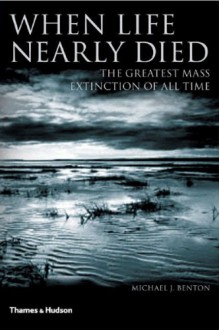When Life Nearly Died: The Greatest Mass Extinction of All Time
It is common knowledge that the dinosaurs were wiped out by a meteorite impact 65 million years ago that killed half of all species then living. Far less well-known is a much greater catastrophe that took place 250 million years ago: at least 90 per cent of life was destroyed, including...
show more
It is common knowledge that the dinosaurs were wiped out by a meteorite impact 65 million years ago that killed half of all species then living. Far less well-known is a much greater catastrophe that took place 250 million years ago: at least 90 per cent of life was destroyed, including sabre-toothed reptiles and their rhinoceros-sized prey, as well as vast numbers of fish and other species in the sea.
This book documents not only what happened during this gigantic mass extinction, but also the recent rekindling of the idea of catastrophism. Was the end-Permian event caused by the impact of a huge meteorite or comet, or by prolonged volcanic eruption in Siberia? The evidence has been accumulating through the 1990s and into the new millennium, and Michael Benton gives his verdict at the end of the volume. From field camps in Greenland and Russia to the laboratory bench, When Life Nearly Died involves geologists, palaeontologists, environmental modellers, geochemists, astronomers and experts on biodiversity and conservation. Their working methods are vividly described and explained, and the current disputes are revealed. The implications of our understanding of crises in the past for the current biodiversity crisis are also presented in detail.
show less
Format: paperback
ISBN:
9780500285732 (050028573X)
Publish date: 2005-09-01
Publisher: Thames & Hudson
Pages no: 336
Edition language: English

This is a nicely written book that investigates the Permian mass extinction event approximately 250 million years ago that wiped out 90% of all species on Planet Earth. The author starts with the history of geology and paleontology, and describes the various historical means of approaching geologic...

